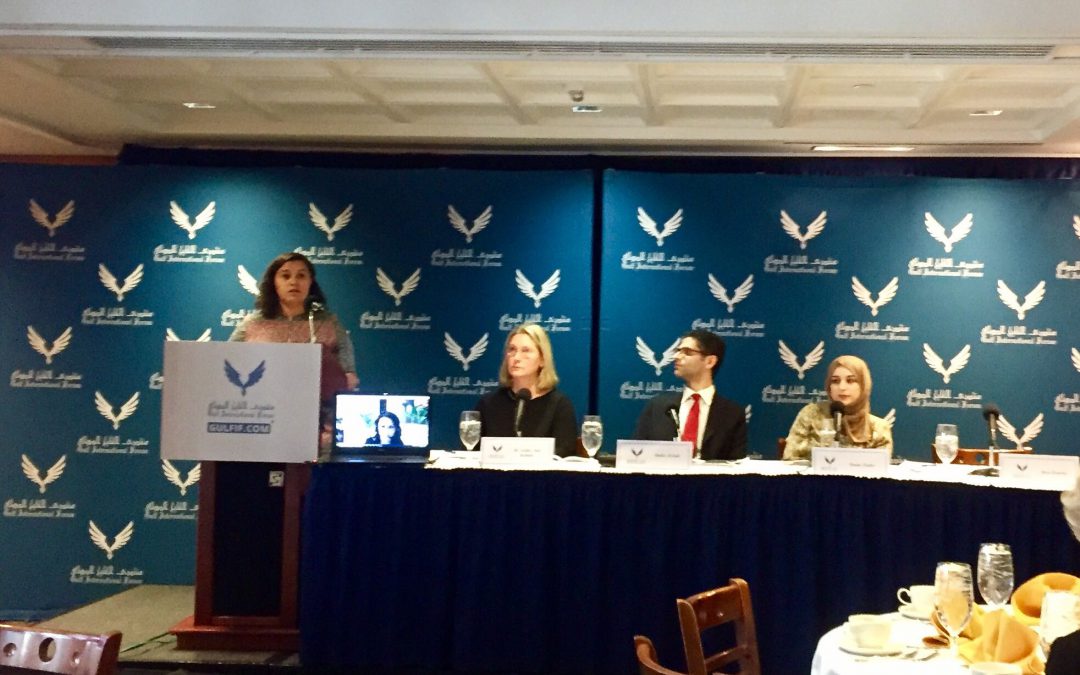WASHINGTON – Advocates for women’s rights in the Gulf countries have adopted a style of feminism that blends western equality with secular values, several experts said Thursday.
Academics, economic experts and human right advocates gathered at an event hosted by the Gulf International Forum, a think tank focused on peace, security and stability in the Gulf. The Gulf consists of Bahrain, Iran, Iraq, Kuwait, Oman, Qatar, Saudi Arabia, the United Arab Emirates and Yemen.
“Gulf governments have an appetite for women’s empowerment these days, whether for the right or wrong reasons,” said Diana Thafer, executive director of the Gulf International Forum.
Economic benefit is one reason that many Gulf governments have instituted gender reform practices. According to Bina Hussein, associate director for the Global Energy Center, diversification of the energy sector could increase profits. If oil prices continue to decrease however, she said, it may hinder the ability of women to enter the workforce.
Gulf governments have long imposed heavy restrictions on women. Last year, though, Saudi Arabian women were allowed to drive for the first time. The government reformed driving laws to appease the international community and quell gender equality protests, explained Rothna Begum, senior researcher for Humans Rights Watch. When protests continued, women were arrested and subjected to physical, psychological and sexual abuse.
“The message was clear,” said Begum. “You cannot demand reform. You can only ask to be given it and hope someone is benevolent enough to give it to you.”
Thafer said societal values and the mindsets of those in power are clear obstacles.
“When power is taken away from one sector of society… that sector will put up a fight,” she said. Not only will some men reject equality, but so will some women for whom western feminism doesn’t resonate.
“The most democratic state, Kuwait, has the least amount of women participation in the parliament today,” Thafer said. “It made me think… What does society actually want of women participation?”
Bader Mousa Al-Saif, a former visiting professor at Georgetown University, recommended Islamic feminism, which incorporates western equality with Islamic values through study of the Quran, and including both men and women in gender equality efforts.


